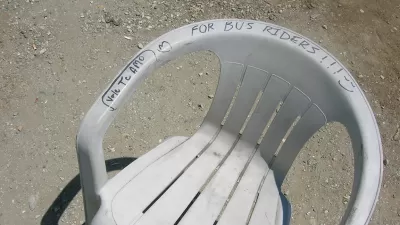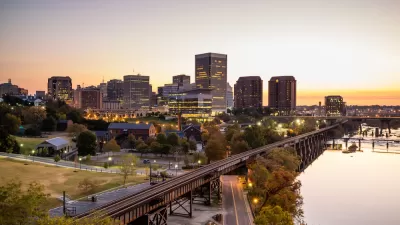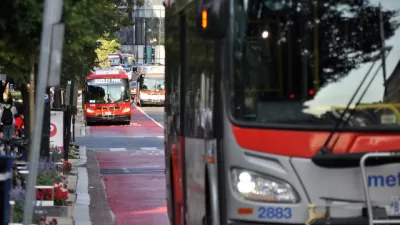Decision makers in cities can mistake their own preferences for the preferences of the city as a whole, which is doubly dangerous when elite preferences become the law of the land.

The loudest voices in shaping cities can be a non-representative sample, Jarret Walker argues in a piece for his blog Human Transit. Cities need to serve everyone. Aiming for solutions that serves a city's richest is dangerous, because, "The mistake is to forget that elites are always a minority, and that planning a city or transport network around the needs of a minority routinely yields an outcome that doesn’t work for the vast majority," Walker says.
The problem of what Walker calls “elite protectionism” is at the root of the obsession with the last-mile problem and the reason for prizing outlandish solutions over practical ones. "Large fixed-route buses are the only form of transit that can quickly scale to an entire city while still using scarce urban space with extreme efficiency. Yet many urban elites assume (subtly or overtly) that bus service doesn’t matter because it’s not useful to them personally," Walker writes.
FULL STORY: The Dangers of Elite Projection

Planetizen Federal Action Tracker
A weekly monitor of how Trump’s orders and actions are impacting planners and planning in America.

Congressman Proposes Bill to Rename DC Metro “Trump Train”
The Make Autorail Great Again Act would withhold federal funding to the system until the Washington Metropolitan Area Transit Authority (WMATA), rebrands as the Washington Metropolitan Authority for Greater Access (WMAGA).

DARTSpace Platform Streamlines Dallas TOD Application Process
The Dallas transit agency hopes a shorter permitting timeline will boost transit-oriented development around rail stations.

Supreme Court Ruling in Pipeline Case Guts Federal Environmental Law
The decision limits the scope of a federal law that mandates extensive environmental impact reviews of energy, infrastructure, and transportation projects.

Texas State Bills to Defund Dallas Transit Die
DART would have seen a 30% service cut, $230M annual losses had the bills survived.

Bikeshare for the Win: Team Pedals to London Cricket Match, Beats Rivals Stuck in Traffic
While their opponents sat in gridlock, England's national cricket team hopped Lime bikes, riding to a 3-0 victory.
Urban Design for Planners 1: Software Tools
This six-course series explores essential urban design concepts using open source software and equips planners with the tools they need to participate fully in the urban design process.
Planning for Universal Design
Learn the tools for implementing Universal Design in planning regulations.
Roanoke Valley-Alleghany Regional Commission
City of Mt Shasta
City of Camden Redevelopment Agency
City of Astoria
Transportation Research & Education Center (TREC) at Portland State University
US High Speed Rail Association
City of Camden Redevelopment Agency
Municipality of Princeton (NJ)





























